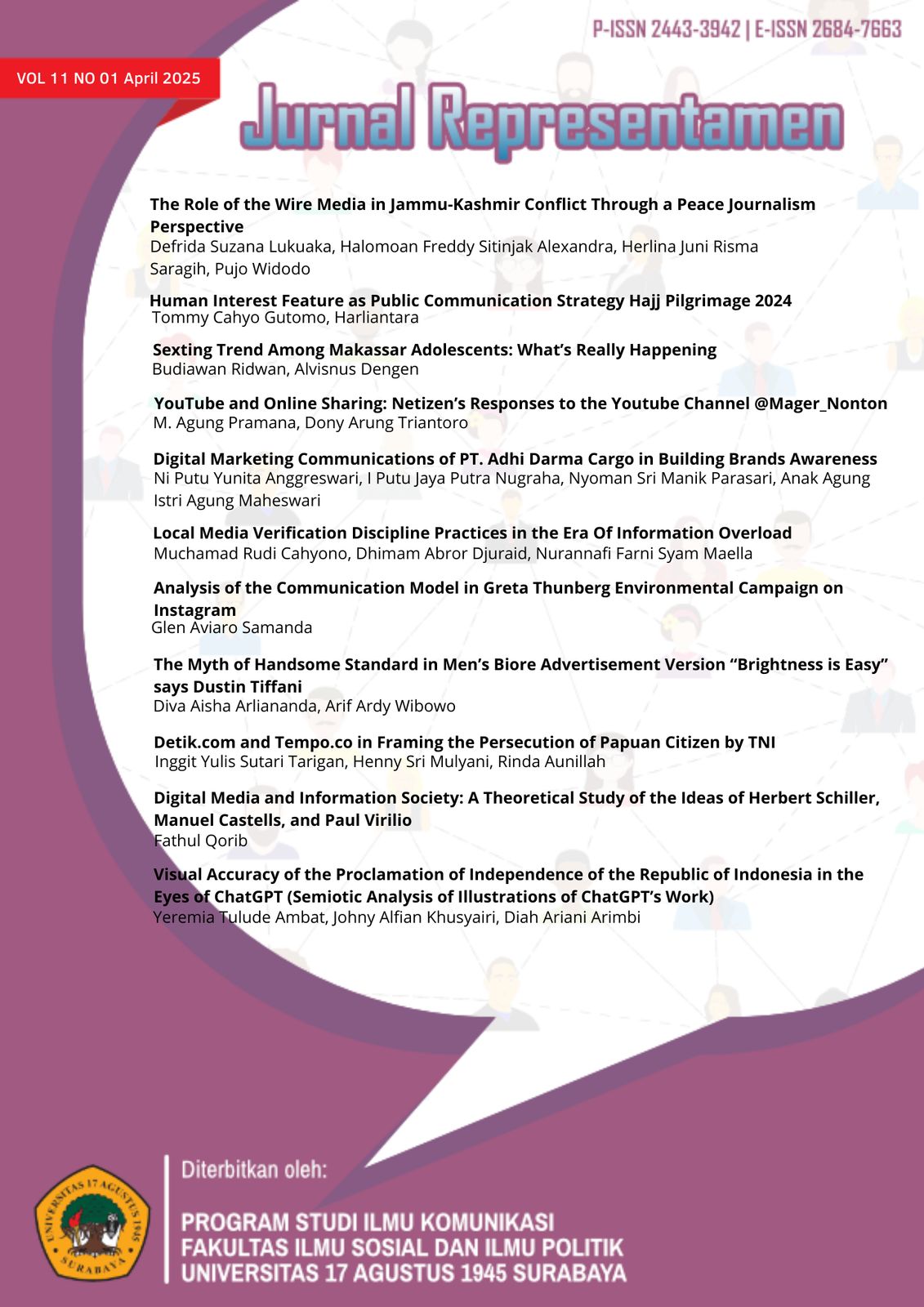Visual Accuracy of the Proclamation of Independence of the Republic of Indonesia in the Eyes of ChatGPT
(Semiotic Analysis of Illustrations of ChatGPT's Works)
DOI:
https://doi.org/10.30996/representamen.v11i01.12781Abstract
In today's era, Artificial Intelligence is increasingly entering into the layers of society, including the historical aspect. This study aims to analyze the accuracy of the illustration of the Proclamation of Indonesian Independence 1945 produced by ChatGPT using a qualitative research approach with Ferdinand de Saussure's semiotic analysis research method. This study found that the illustrations produced by AI were historically inaccurate, both in the depiction of the proclaimer, clothing, crowds, and main symbols such as the red and white flag. In addition, although some aspects, such as people's clothing, are close to the facts, most of the illustrations show deficiencies in conveying the true meaning of history. This distortion creates hyperreality, where the resulting visual elements reflect the algorithm's interpretation more than historical facts. This study also highlights that the inaccuracy is due to the limitations of AI in understanding cultural and historical contexts in depth. AI illustrations tend to function as symbolic metaphors rather than factual representations, obscuring the original meaning of events. That makes AI categorized as popular culture, which makes it inauthentic and unoriginal. It shows that AI still requires human intervention to ensure cultural and historical accuracy. This study concludes that the use of AI in representing historical events requires critical oversight to prevent the spread of biased or misleading information. The study emphasizes the need for collaboration between technology and human interpretation to maintain the accuracy of historical information.
Downloads
Downloads
Published
Issue
Section
License
Authors whose manuscript is published will approve the following provisions:
The right to publication of all journal material published on the jurnal representamen website is held by the editorial board with the author's knowledge (moral rights remain the property of the author).
The formal legal provisions for access to digital articles of this electronic journal are subject to the terms of the Creative Commons Attribution-ShareAlike (CC BY-SA) license, which means Jurnal Representamen reserves the right to store, modify the format, administer in database, maintain and publish articles without requesting permission from the Author as long as it keeps the Author's name as the owner of Copyright.
Printed and electronic published manuscripts are open access for educational, research and library purposes. In addition to these objectives, the editorial board shall not be liable for violations of copyright law.











